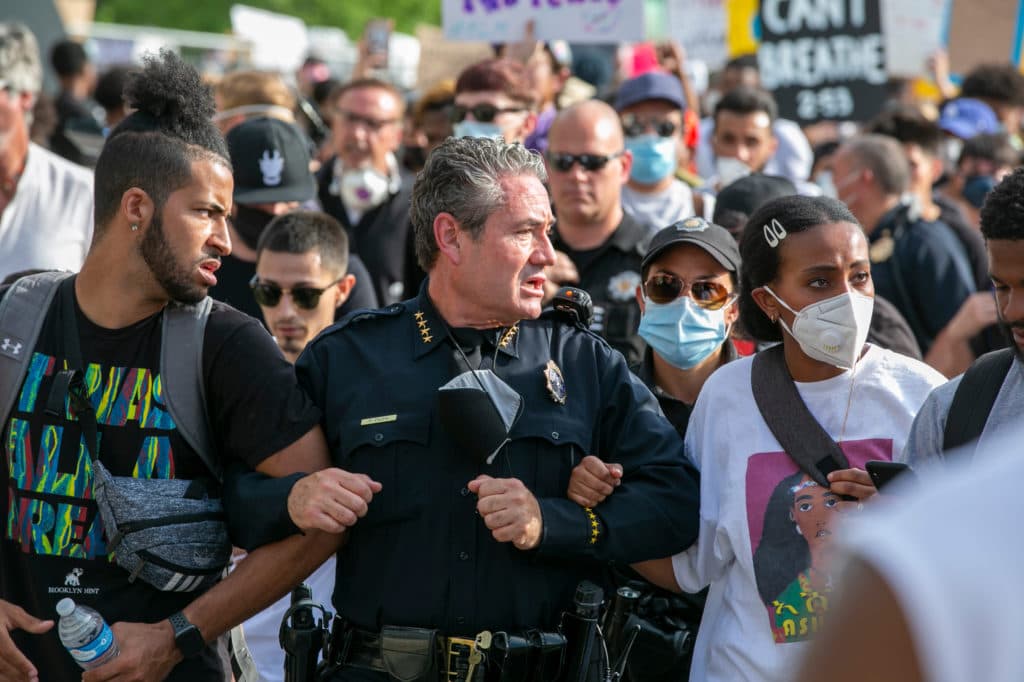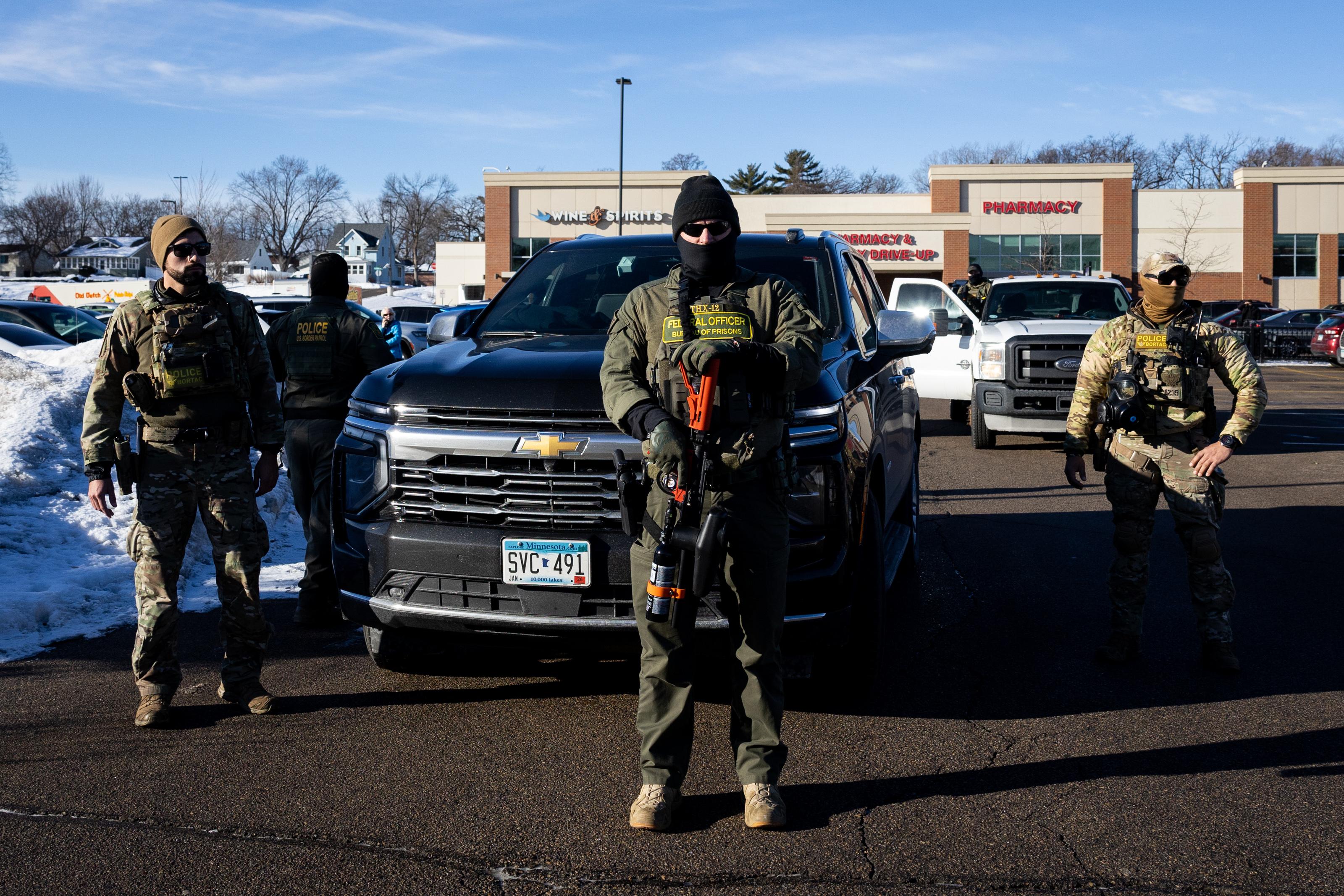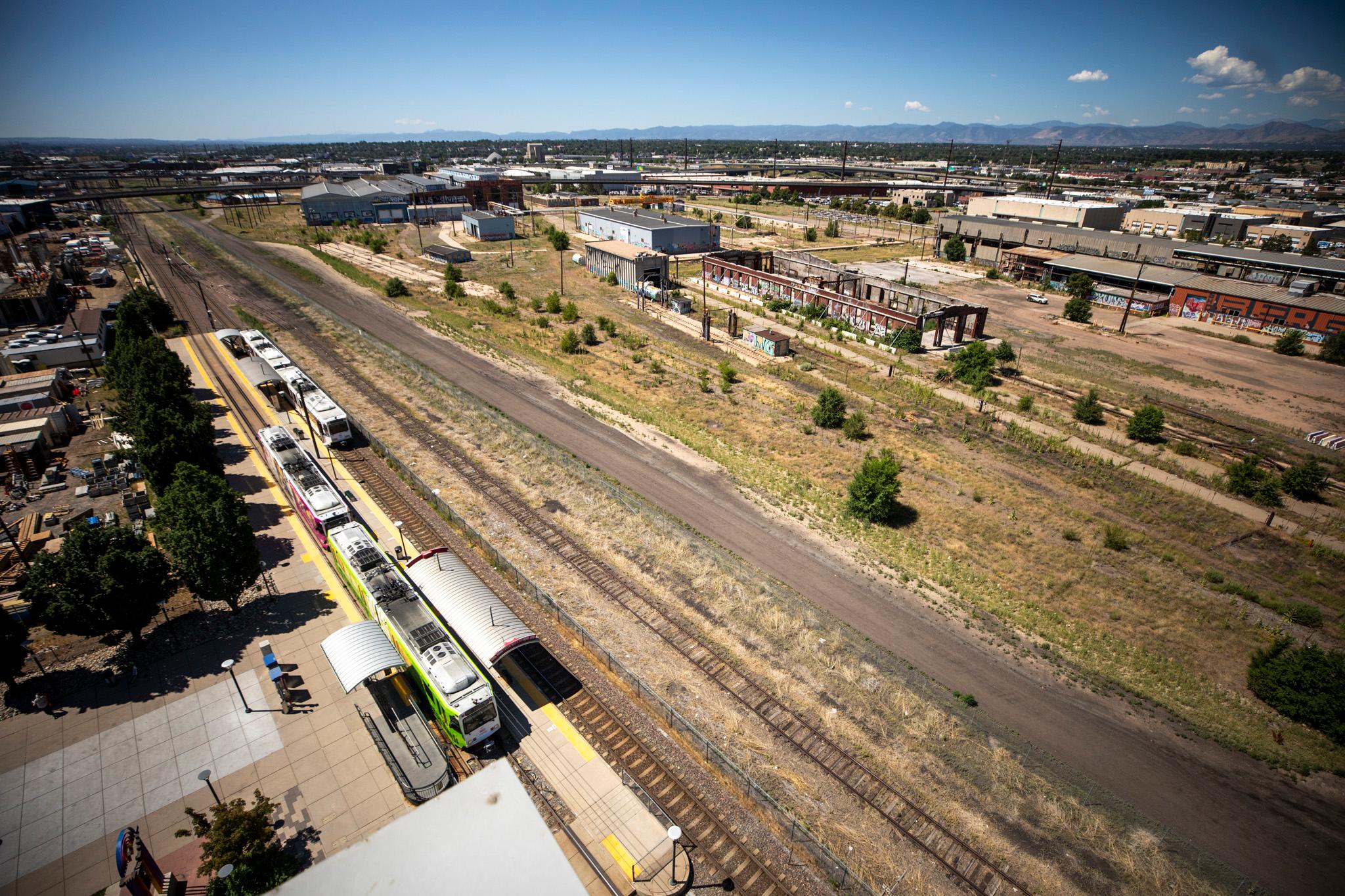On Wednesday, Denver's Chief of Police Paul Pazen, who served for the past five years, told Mayor Michael Hancock he would retire in October.
The decision was voluntary, the mayor said. The timing was based on when the chief's retirement benefits would kick in and how much paid time off he had earned.
Pazen was on vacation after his announcement.
Now, policymakers, advocates and watchdogs are reflecting on Pazen's legacy and what they want out of the next chief.
Mayor Michael Hancock, who appointed Pazen, spoke glowingly about him.
"Chief Pazen has had a distinguished career with the Denver Police Department, and over his nearly three decades in law enforcement, he has served the residents of our city at nearly every level of the department, including its highest rank, with integrity and a community-focused approach to policing," Hancock, his boss, said in a statement. "I want to thank Chief Pazen for answering the call to serve, and for his leadership of our community's police department during these difficult past few years in the life of our city and our country."
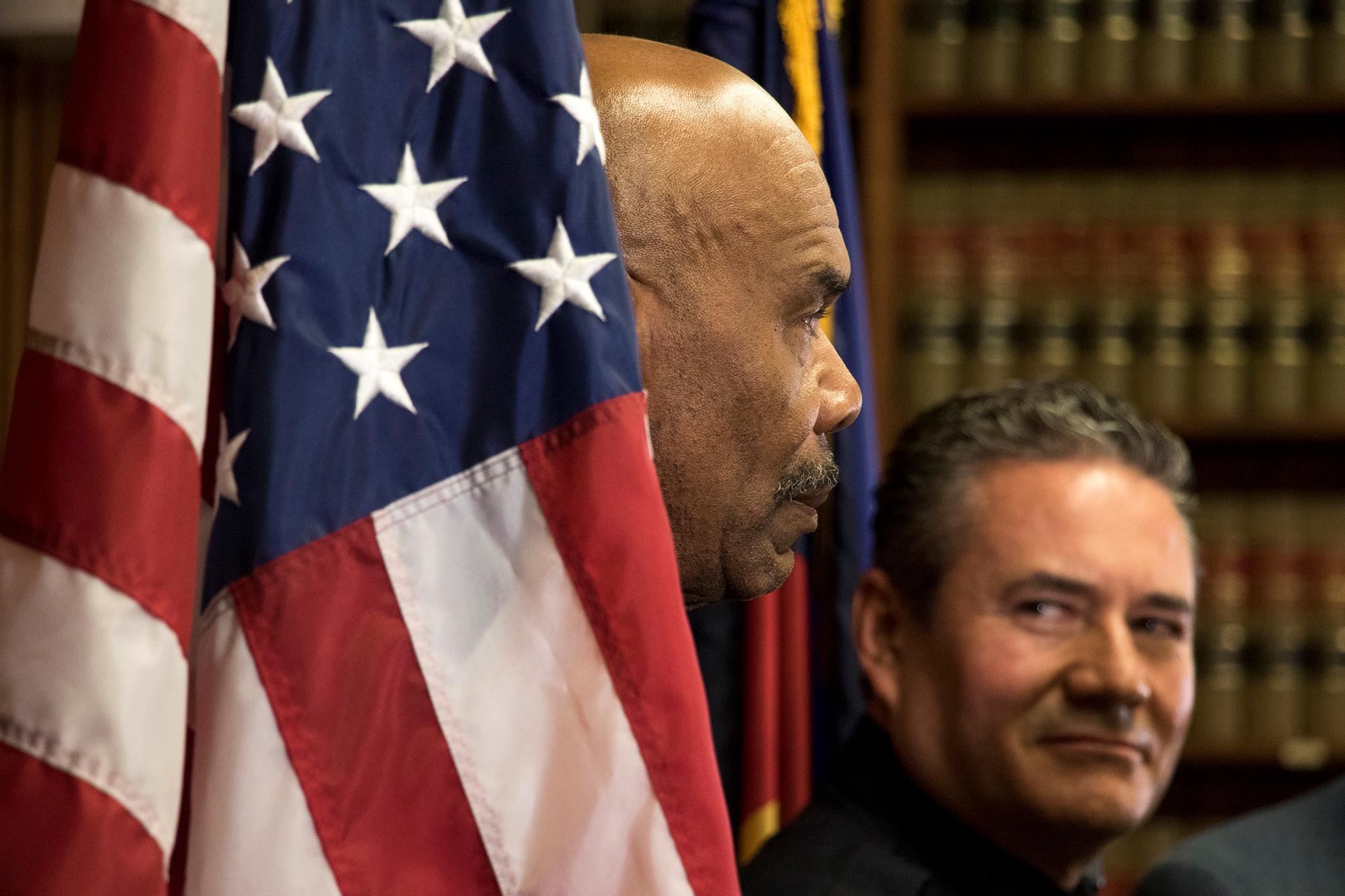
Hancock's statement ignored the complicated parts of Pazen's legacy -- and in turn, the mayor's own.
Pazen was appointed after fellow Hancock appointee Chief Robert White retired. White's fraught tenure involved both reforms and numerous police brutality cases, including officer-involved killings that led to lawsuits and protests.
Pazen, who had earned his reputation as a community champion, was hired to fix the department's image.
But in Pazen's time in charge, the department was slapped with more lawsuits over police conduct, some of which have been settled and others which the city has lost, spending millions.
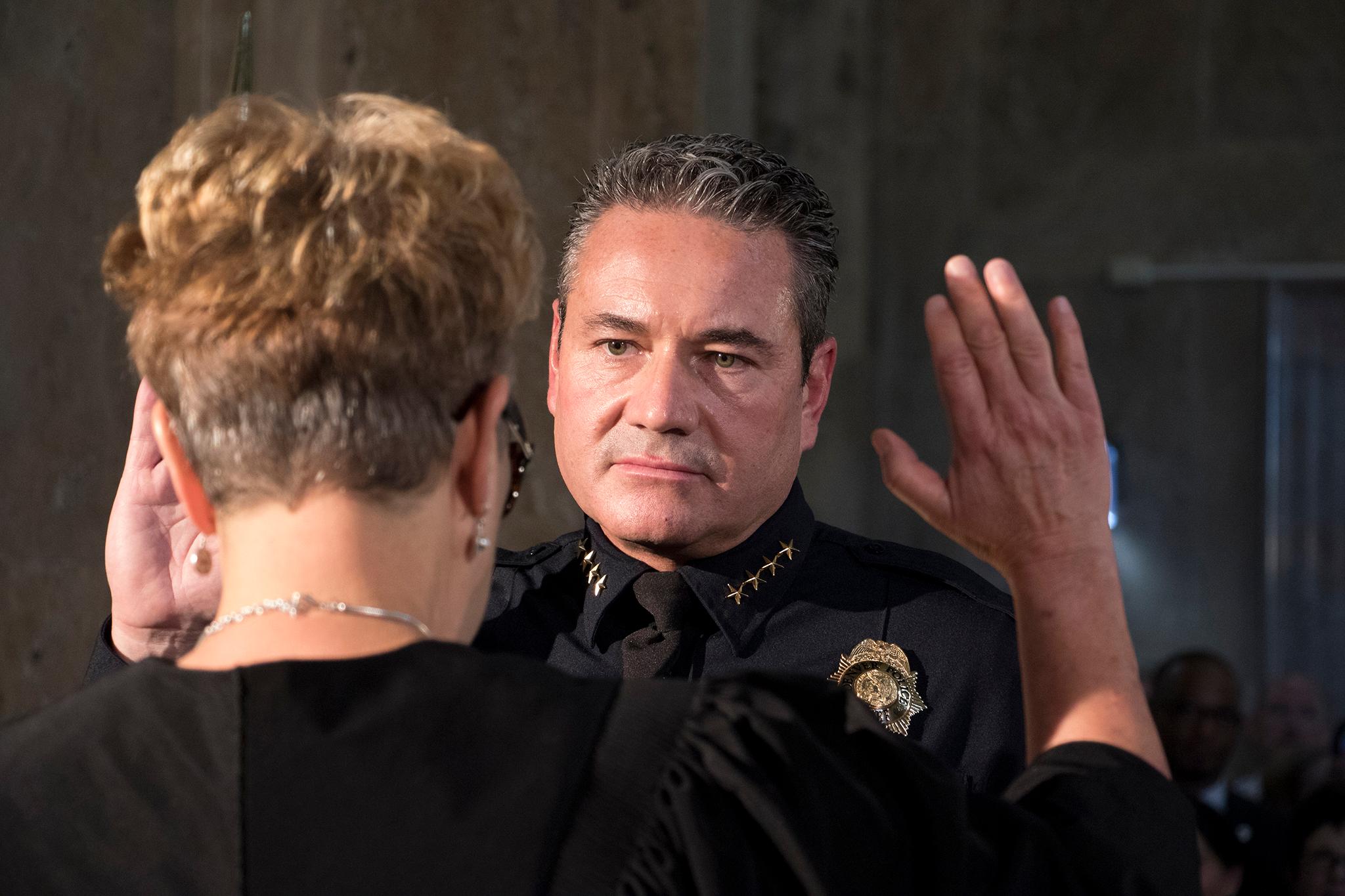
Hancock and Pazen's time has been defined by contradictions.
Both marched at George Floyd demonstrations. Yet, under their leadership, officers also unleashed violence on protesters at those rallies. As a result, the chief and the department have faced multiple excessive force and police misconduct lawsuits. The city was fined $14 million after a jury decided Hancock's and Pazen's police violated protesters' First Amendment rights.
Pazen has prided himself for taking guns off the streets. He also oversaw the department when police fired into a crowd, shooting one suspect and six bystanders, in LoDo, in July.
Throughout his time in the role, he has navigated the tensions between tough-on-crime policing and harm reduction efforts, often attempting to appeal to proponents of both methods in addressing drug crimes.
He has championed community policing and supported programs like STAR and LEAD designed to keep low-level offenders out of jail and instead connect them with services.
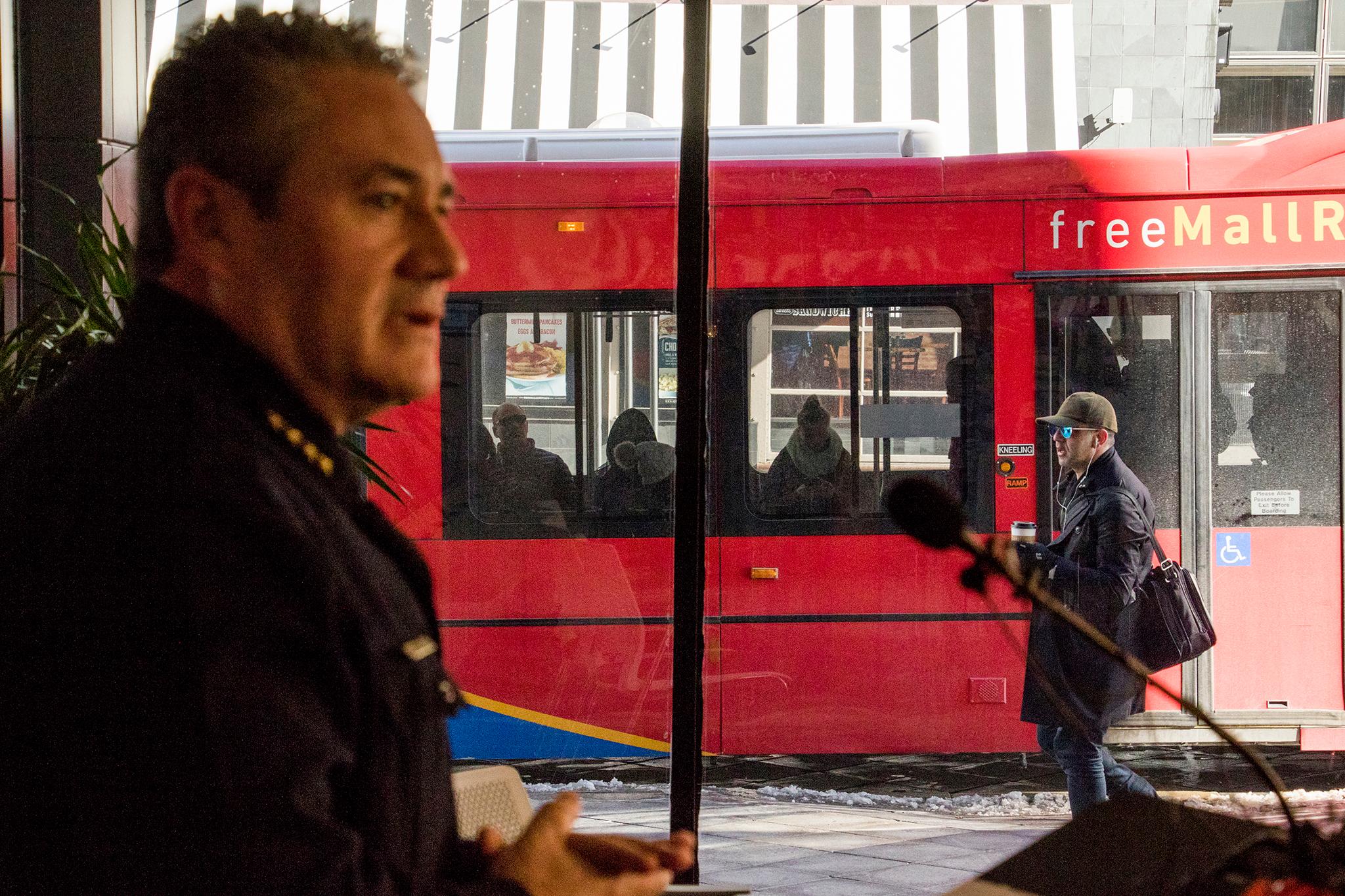
City Council members have a wide variety of views on Pazen's legacy.
"Having served during such a tumultuous time of unprecedented growth, civil unrest and the COVID pandemic, it will take time to accurately and fully assess the Chief's tenure," District 6 Councilmember Paul Kashmann wrote.
District 2 Councilmember Kevin Flynn told Denverite he hopes Pazen's is remembered for embracing innovative approaches to policing -- programs like STAR, which were initiated under White's administration and carried out under Pazen.
"It's been very, very successful," Flynn said of STAR. "We have expanded it citywide. And it has the capacity to take a not insignificant number of nonemergency responses off of the plates of armed police response, where it's simply not needed. I know that many officers embrace this as well. It's become a national model. "
But Flynn worries it's not Pazen's innovative approach to policing that has left its mark on the city.
"Unfortunately, I think many people will remember his tenure for the protests and riots downtown -- because we had both," Flynn said. "We had peaceful protests and we had violent protests. And the response to that will probably be remembered more than his embrace of forward-thinking policing."
Flynn's district in southwest Denver has experienced a devastating rise in auto theft and shootings, mirroring what's going on in other parts of town. While many in the community have expressed support and admiration for Pazen, Flynn said, others have experienced a heightened sense of anxiety and want to see more police in the area to address crime.
"I'm sorry to see him leave before we can turn the corner on that," Flynn said.
When Pazen was the commander of Police District 1, he worked extensively with District 1 City Councilmember Amanda Sandoval.
"Chief Pazen has been dedicated and loyal to the people of Denver, not only during his time as Chief but throughout his career," she emailed Denverite. "I had the honor of working closely with him during his time as Commander of Police District 1, on various issues and always found him to be an amazing partner."
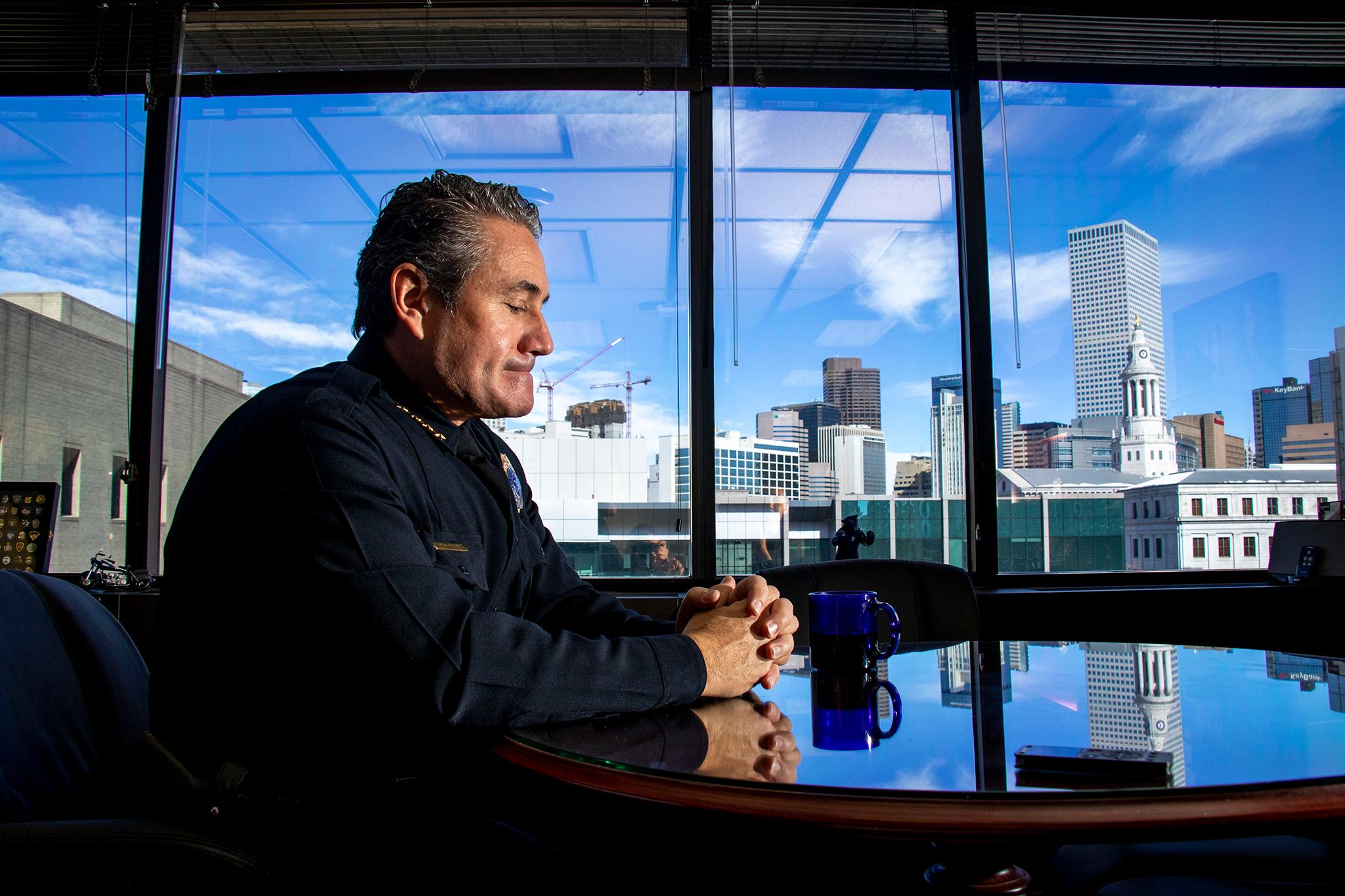
District 9 Councilmember Candi CdeBaca, a frequent critic of the police department, offered a scathing assessment.
"His entire tenure has been plagued by failures," she said. "And I think that when you look back at his legacy, the evidence of failure is really in the amount of payouts that we've issued, both for settlements, pending trials, as well as the independent monitor's report, and the mass police shooting that we're still waiting for an investigation on -- all of this, and very little accountability within the department."
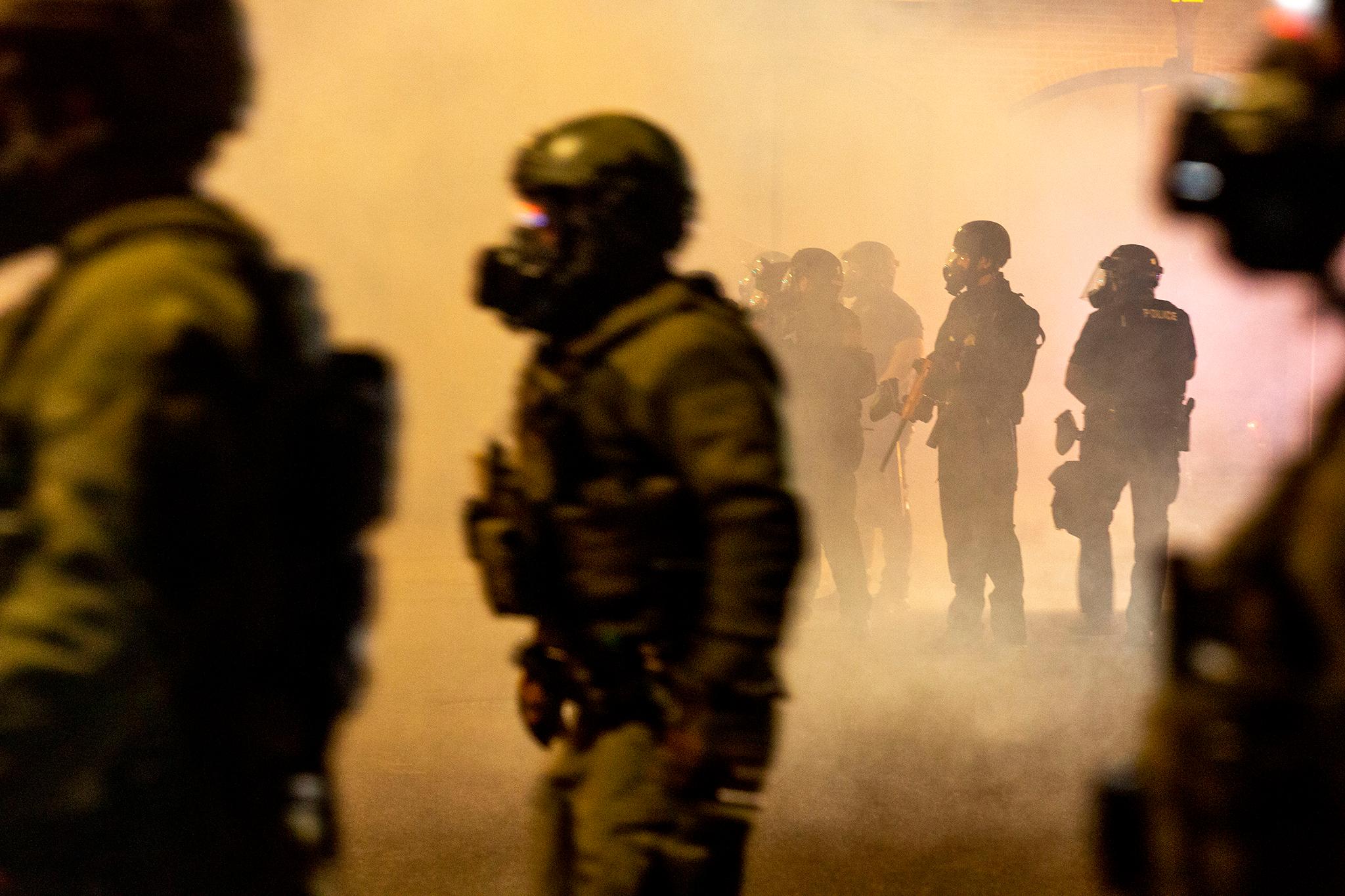
The Independent Monitor's Report was a massive document that included interviews with members of the police force that described his performance during the George Floyd protests as both "angry" and "paralyzed," decried the lack of training officers had received that led to the violence against protesters, and described his handling of the protests as a failure of leadership.
District 10 Councilmember Chris Hinds didn't address Pazen by name when asked about his retirement, but did offer, "Our community still has quite a bit of healing to do."
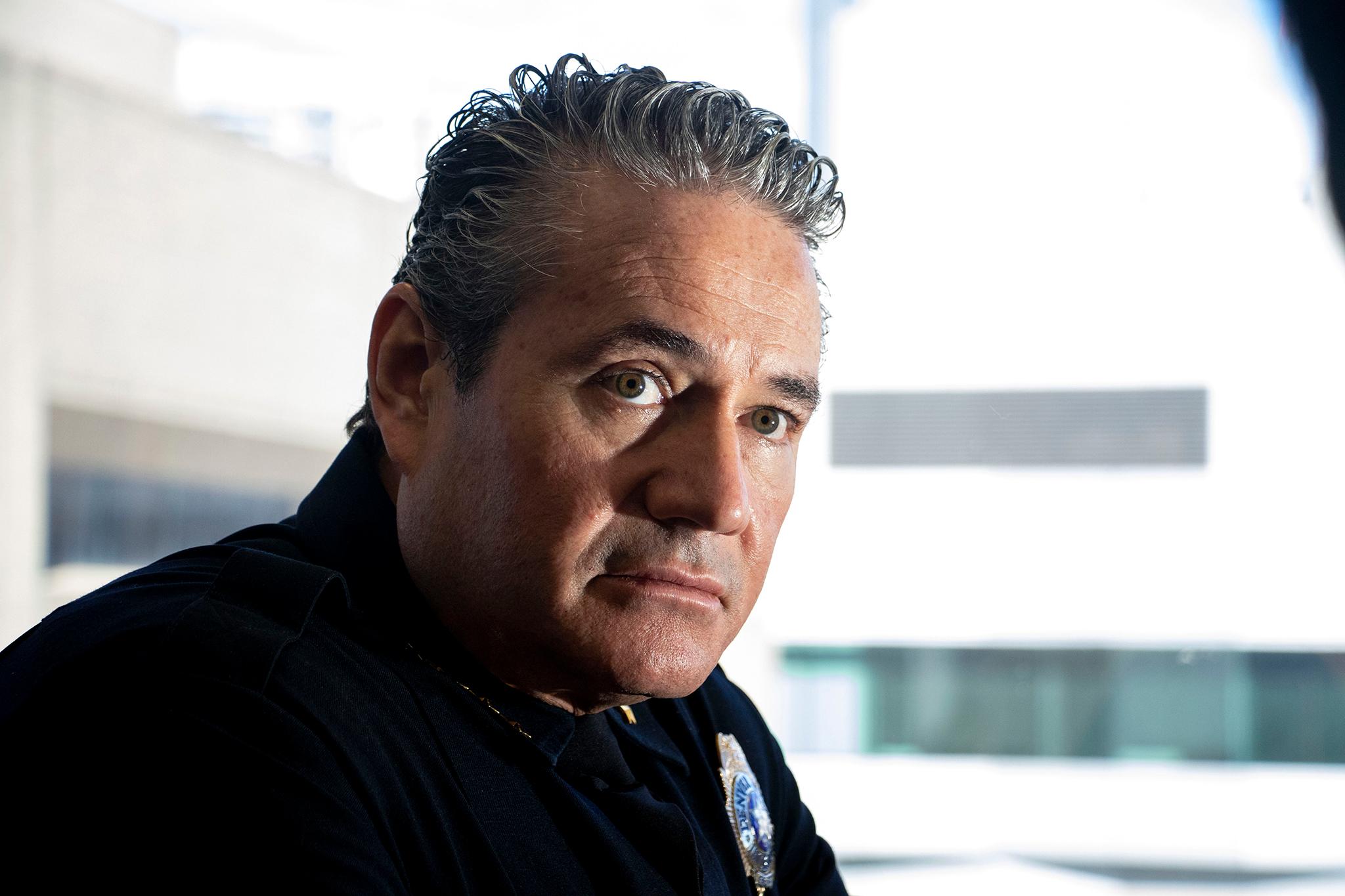
District Attorney Beth McCann, who collaborates with Denver Police Department in prosecuting crimes, appreciated Pazen's leadership.
She was elected during Chief White's tenure. At the time, he was being blasted for his leadership at a department in legal trouble and under public scrutiny for excessive force and police killings.
During her first campaign, she promised to address excessive force and police violence, though her office has not exactly made a crusade out of it.
McCann released this statement about Pazen.
"Chief Pazen is a dedicated public servant who ushered in many positive and launched many new programs like STAR and LEAD which are serving the people of Denver well," she wrote. "He was committed to improving relationships between the police and the community. His concern about the recent rise in crime led to a targeted focus on hot spots and emphasis on removing illegal guns from our streets. My office has enjoyed working with him for the last several years."
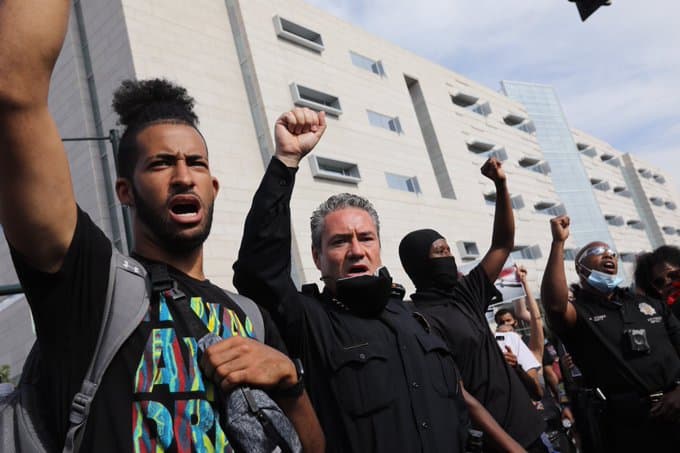
Potential mayoral candidate, criminal justice reform advocate and head of Emerge Colorado, Lisa Calderón, has been a steady critic of the Denver Police Department and Pazen -- and may be facing off with him in the mayoral race, if both choose to run. Pazen told Denverite, in December, he would not.
"It's been high time for Chief Pazen to go," said Calderón, in a statement. "Record payouts for police brutality, a DPD mass shooting and lost community trust. Hopefully, other safety heads will soon follow. The next Denver Mayor needs to make a clean sweep. If Pazen even thinks about running for mayor, we're ready."
The Denver Police Protective Association, the police union, framed Pazen's retirement as part of a larger trend of officers leaving the field.
"On behalf of the men and women of the Denver Police Protective Association (PPA), we wish Chief Pazen well in his retirement and we understand the increasing demands on a law enforcement officer in the State of Colorado and the City of Denver," wrote Linda Yeros, the director of the union, in a statement. "Chief Pazen's departure, along with hundreds of other experienced officers leaving the profession, comes as no surprise as the risks to personal safety, livelihood and freedoms are higher than they have ever been."
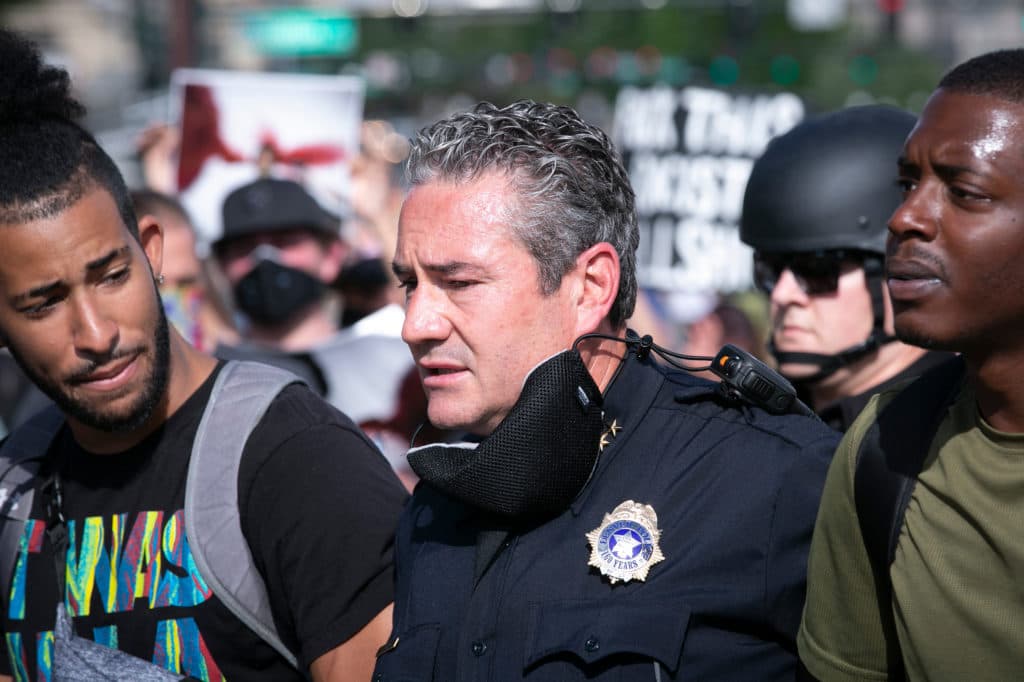
In acknowledging Pazen's retirement, Denver's law enforcement watchdog, the Citizens Oversight Board, opted not to acknowledge him directly at all.
No well wishes. No tributes to his best work. Not even a direct jab at his failures -- though there was plenty of jabs at the department's work.
The Citizen Oversight Board used the occasion of Pazen's retirement to call for reform of the department and the city as a whole.
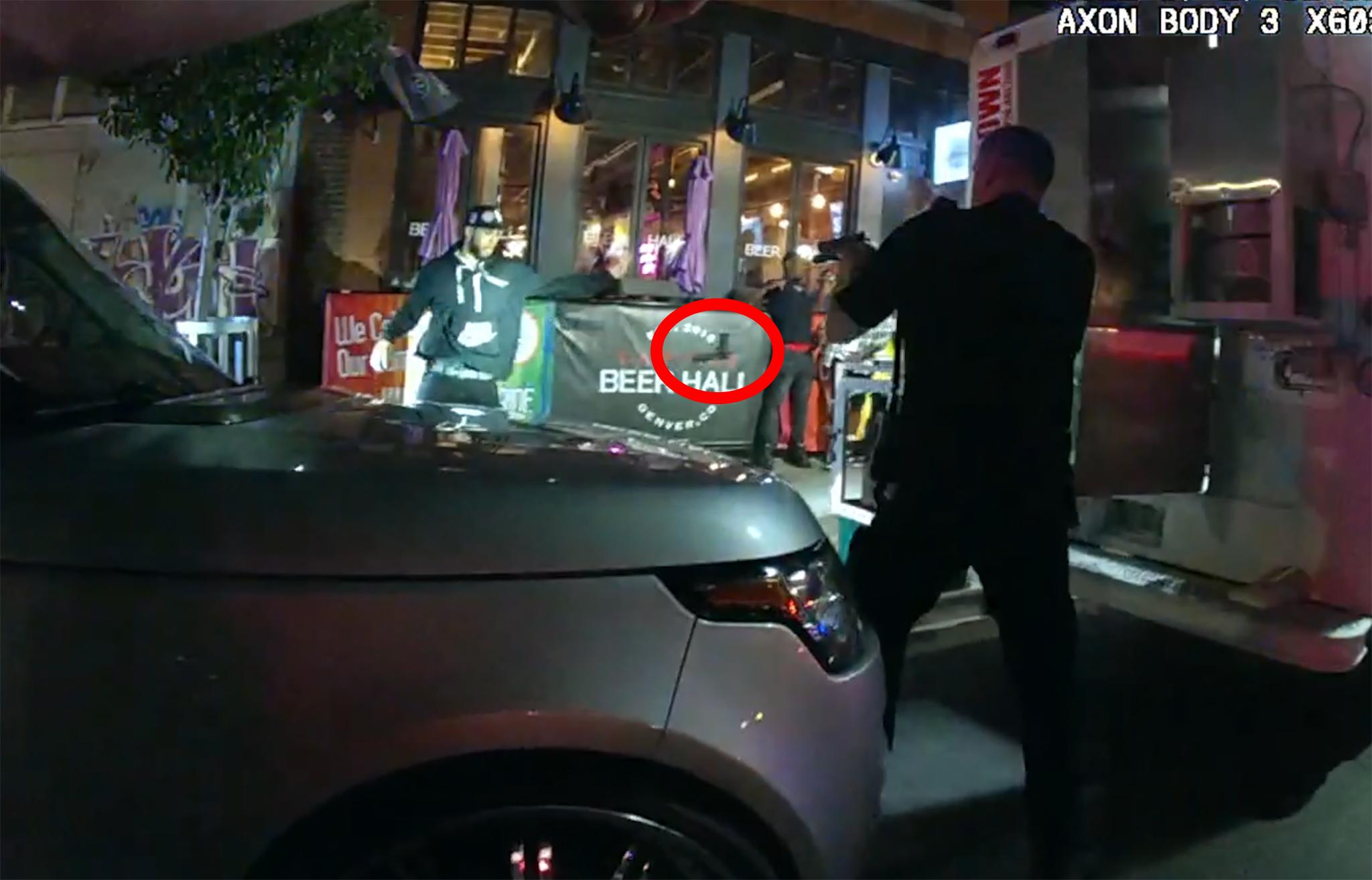
"The past few years have been challenging for Denver and have strained the relationship between our community and our police force," the board wrote. "We acknowledge and appreciate the difficult and dangerous jobs performed by Denver's law enforcement officers, but the police response to the George Floyd protests in the summer of 2020 and the recent police shootings of innocent citizens on July 17 in LoDo are two high profile failures that underscore the need for systemic change in the Denver Police Department."
So what about the next guy?
Mayor Hancock appointed Division Commander Ron Thomas, who will begin his work as chief next week. If City Council approves, he will be the next full-time head of the force.
Thomas is a stoic, seemingly imperturbable leader, often the first on the scene to speak after an officer-involved shooting or other high-profile crime. He's also a longtime member of the department who has appeared at many neighborhood meetings and community gatherings, building trust along the way.
"He's everywhere," Hancock said, at a press conference, announcing Thomas's appointment.
Hancock, who knew Thomas as a beat cop long before the mayor entered politics, said that everybody he asked about the new chief had great things to say about him.
"I am a man of very few works," Thomas said at the press conference. "I really realize actions speak louder than words."
But he wasn't afraid to address some of the safety issues the city is facing and the current lack of trust in law enforcement.
"The city and I hold a strong vested interest in having safe communities that trust in their police department," Thomas said. "Now, having said that, I understand the challenges ahead that have created my charge.
"I know that crime is up, that other safety challenges have increased," he continued. "I recognize that response times are up. I understand that call hold times are up. At the same time, I understand that our staffing is down. I understand that community trust is also at a low point.
"And I'm committed to fixing those things," he said. "We need to fix those things. And those things are going to be addressed. I can promise you that."
Hinds is enthusiastic about the pick.
"Division Chief Ron Thomas has been in the trenches and in command, making him a great choice for interim Chief," he said. "He also served in Internal Affairs, and he can lead those who serve with honor while ensuring Denver Police transitions out those officers who don't."
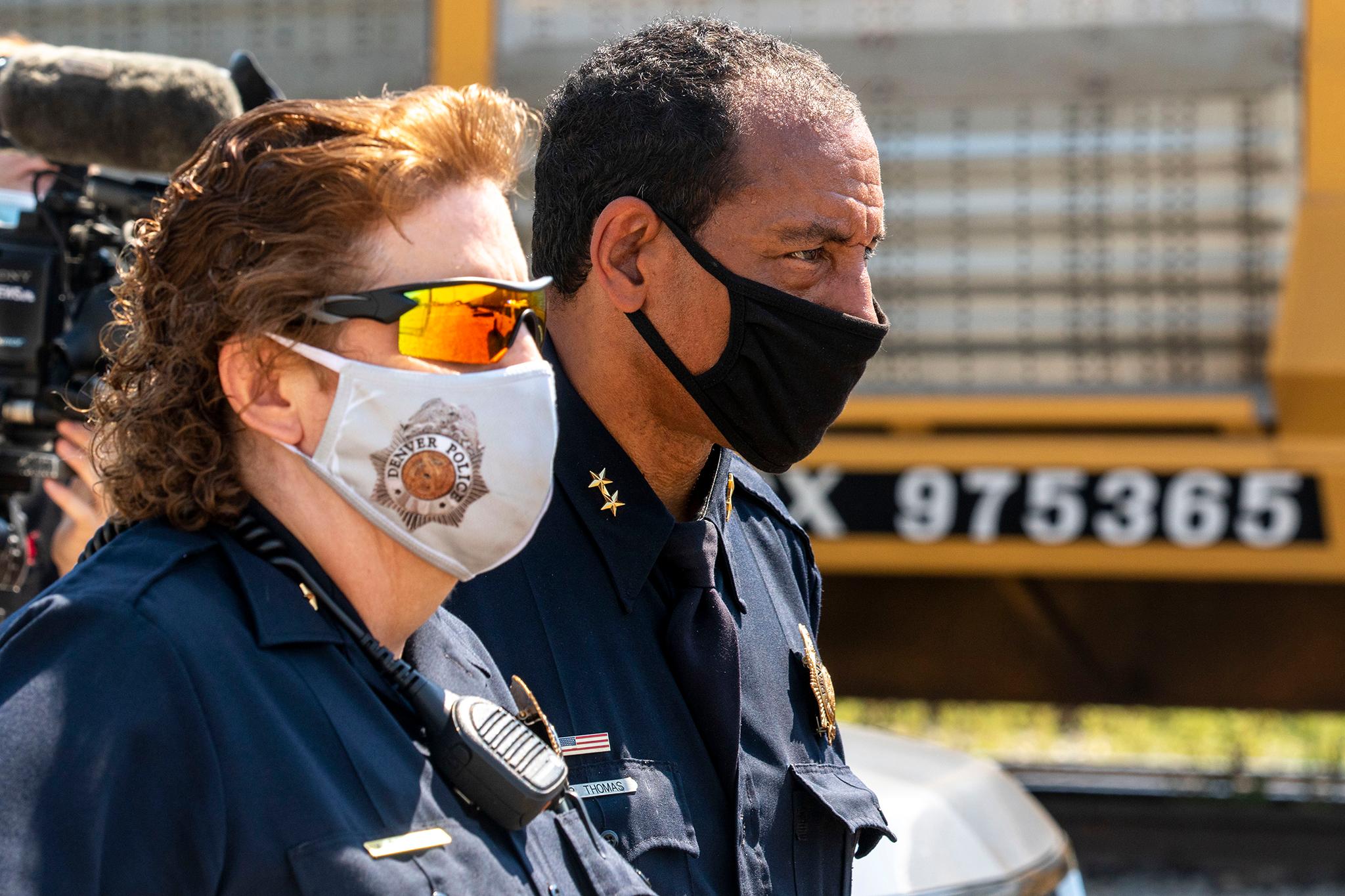
CdeBaca said Hancock, with less than a year in his role as mayor, has appointed a "career bureaucrat, somebody who's probably close to retirement themselves."
"That is Chief Thomas," she said. "Someone who's been there, who is unfazed by anything and everything... He's been there long enough that we know he's inconsequential."
How long Thomas will serve in the role is unclear, since Hancock is term-limited and the chief of police is appointed by the mayor.
"I would expect that a new mayor will do a search for a new chief of police that will reflect the values and the approaches of the new administration," Flynn said. "So I don't know if Chief Thomas is an interim, a bridge to the new administration, or whether a new mayor will look seriously at retaining him. I can't predict that, because I have no idea who that new mayor will be. But I have a high degree of respect for Chief Thomas and his work."
Multiple City Council members are calling on the next chief to continue to reflect on the role of policing in the community and embrace programs like STAR.

"Moving forward I look for DPD to blend the best of traditional badge and gun law enforcement along with a critical public health approach that addresses the causes of criminal behavior," Kashmann said.
"My hope for the future of the Denver Police Department (DPD) is they continue to evaluate and implement community policing best practices found across our nation," Sandoval noted. " I encourage DPD to continue partnering with STAR and other programs which contribute to public health and safety."
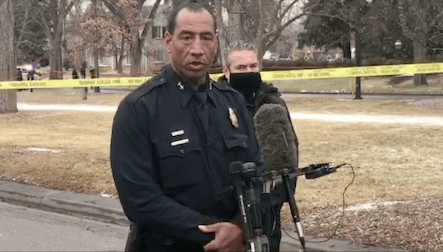
The police union plans to work with Thomas in addressing retention and safety issues officers are facing.
"Public trust in law enforcement is established through accountability and transparency," wrote the Citizens Oversight Board. "It is our hope that under the new leadership of Ron Thomas, should his appointment be confirmed by Council, the DPD will engage in a renewed effort to fully restore that public trust. We wish him the best of luck in his new role and we look forward to working with him as we continue to provide civilian oversight of law enforcement along with the Office of Independent Monitor."
The need for reform does not stop with the new chief, the oversight board added.
"While there are many things that fall under the Police Chief's purview, our city also faces challenges that will require coordinated efforts by all of our city leaders to meaningfully address," the board concluded. "As we work to hire a new Independent Monitor and await the changes that next year's election will bring, we remain hopeful that the role of public safety will be reimagined in our city with the support of our city leaders, law enforcement and community."
Hancock has told Thomas the administration has 300-plus days to make Denver a national model of how a police department can restore trust with a community and believes he's up to the challenge.
And Thomas will need to fix the hiring shortage. And reduce crime. And increase transparency.
Said Flynn: "Chief Thomas is going to have his hands full."

